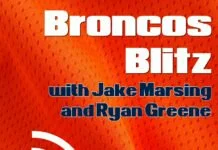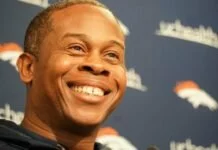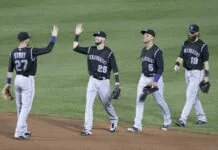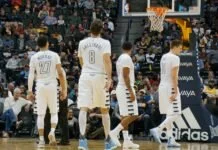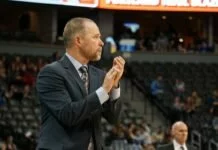In a sports age dominated by short attention spans, video clips and gossip, the NHL should be thriving. Instead, it continues to sit on the bench. The fastest game in the world’s shortsighted decision-making favors small gains over long-term growth. Keeping its stars out of the Olympics fits into the mindset of the NHL owners.
Before the NHL locked its players out for the entire 2004-2005 season, the NHL was at least considered one of America’s four major sports. This is no longer the case. There are now three major American sports—football, basketball and baseball. Hockey is way down at four. Hockey has more competition from below (soccer, golf, lacrosse) than it has a shot at competing with the big three.
The NHL is a cautionary tale of what happens when you base all of your decisions on quick money and never consider how taking less in the short term leads to greater growth down the road. Time and again, the NHL decides it would rather get rich quick, while eroding steps forward for the league.
The poor decision-making includes keeping players out of the Olympics, failing to market its own players, oversaturating good ideas and helplessly flopping in the media landscape during the cable TV and Twitter sports eras.
* * *
The game of hockey holds the attention of the United States only once every four years, as the marque event at the Winter Olympics. The 2014 games saw T.J. Oshie become a national topic of conversation with his shootout goal performance against Russia. 2010’s gold medal game between the U.S. and Canada is in the conversation for the best hockey game of the last decade.
When the NHL announced that it wouldn’t stop operation for two weeks to allow players to compete in next year’s Seoul, South Korea Olympics, it was an exasperating move. None of America’s major sports would make this move. It would be like the NFL moving all of its games to the daytime on a Tuesday to purposefully cut down on viewers.
Ignoring the spotlight the Olympics put on hockey, NHL Commissioner Gary Bettman’s list of reasons for this move is expected. South Korea’s time zone does not match up with North America, the NHL takes a risk loaning players to Olympic squads and it hurts the NHL’s regular season.
The NHL’s regular season is nothing special and gets almost no attention in the sports world. The hockey is more entertaining in the Olympics the NHL because of the concentration of talent. I’ll still be watching Olympic hockey in February—some European players will leave the NHL and play in the tournament and lower level North American players will compete.
At least the owners can “protect their brand” with this move. Of course, the NBA overshadows the NHL’s brand all season long. Next year, the Olympics will also overshadow it.
* * * * *
Before the 2004-2005 lockout the NHL was competing with the NBA and MLB for attention. Baseball was recovering credibility from the steroid era. The NBA was in a weird transition between Michael Jordan and LeBron James—with Kobe Bryant and his scandal. The NHL had a shot.
How did the NHL respond to such an opportunity? The same way they’re responding to the Olympics. They looked at short-term dollar signs instead of the long-term impact on the game. They missed an entire season in a labor dispute. Then, they chased the dollars with an exclusive TV contract with NBC (primarily on the Outdoor Life Network).
That contract shut the NHL out of the conversation at ESPN. At the time ESPN dominated the sports media world. The foolish decision still haunts NHL relevance, but times have changed. ESPN does not drive conversation anymore. It has to react to stimuli of Twitter and other parts of the Internet.
So why isn’t the NHL in the conversation more regularly now? They don’t promote their own game well. They’re not going out of their way to build storylines around players. Most casual sports fans couldn’t tell you much about Connor McDavid—instead they’re watching NFL minicamps.
The NHL is already at a disadvantage because their players wear masks. However, they could learn from the NFL in that area. They focus their energy on making a handful of players marketable. The NBA took that strategy and ran with it—they now have the most personable celebrities in sports. They gave the power to their players. The NHL has not—perhaps already planning the next lockout.
* * * * *
Even when the NHL has a good idea, they flub it. The Outdoor games were a hit when they were introduced. Then the NHL chased the money and staged too many outdoor games each year, over-saturating this product. When the College Football playoff came knocking to compete on New Year’s Day with the Winter Classic, the NHL didn’t move their game. They dug in their heels and lost viewers.
The NHL is now a regional sport. It rarely draws national attention the way the other three leagues do. MLB has a similar problem, but they thrive in their regions and have a monopoly on the summer. Plus, baseball feels emboldened by the energy around the Chicago Cubs.
A lot of hockey fans might wonder why we care about the rest of the sports world? Fans sometimes enjoy the fact that hockey is an underdog, underappreciated sport. However, it’s not a lot of fun to argue endlessly whether hockey or soccer is more of a real sport. Let’s save the martyrdom for the NHL owners. It’s a mentality born out of winning labor disputes, but not winning fans.







